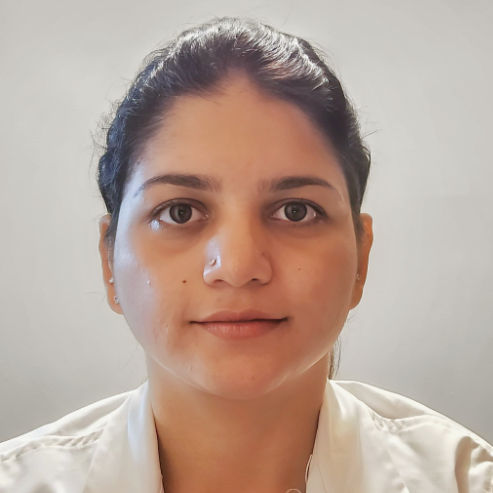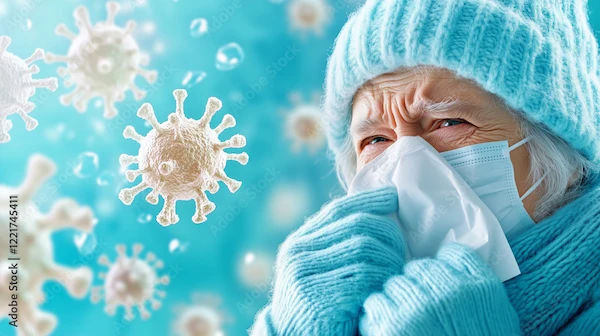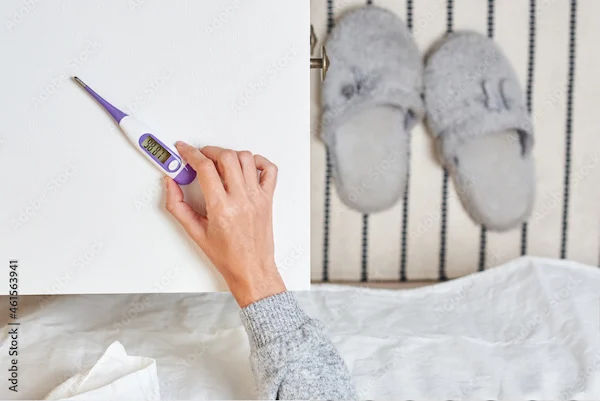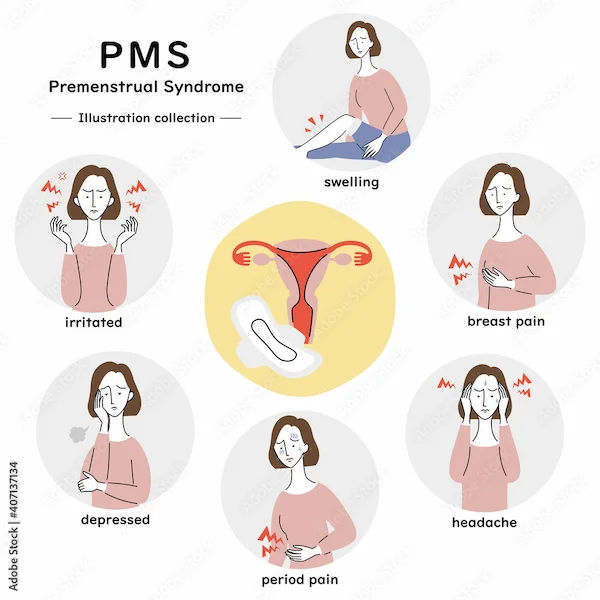Monsoon Health Tips: Staying Safe During the Rainy Season
Worried about monsoon health risks? Read about how to prevent illnesses, increase immunity and protect your family during the rainy season.

Written by Dr.Sonia Bhatt
Last updated on 3rd Jul, 2025

Introduction
The monsoon season offers respite from the summer heat, however, the rains also bring heightened risks of infections, waterborne diseases, and accidents. Humidity, stagnant water, and contaminated food or water sources create a breeding ground for pathogens. By understanding these risks and adopting preventive measures, you can safeguard your health and enjoy the rainy season. This blog provides detailed, actionable tips to help you stay healthy during the monsoon.
Common Monsoon Health Risks
Before diving into prevention, it’s important to recognise the threats unique to this season:
Waterborne diseases: Cholera, typhoid, and hepatitis A spread rapidly through unclean and contaminated water during monsoon.
Mosquito-borne illnesses: Stagnant water in discarded tyres, flower pots, or puddles becomes a breeding ground for mosquitoes, increasing risks of dengue, malaria, and chikungunya.
Respiratory infections: Damp, humid weather encourages the growth of mould and mildew, aggravating asthma and allergies. Colds, flu, and sinusitis also surge in crowded, poorly ventilated spaces.
Skin and fungal infections: Constant moisture promotes fungal growth, leading to conditions like athlete’s foot, ringworm, and bacterial rashes.
Leptospirosis: Walking through floodwater contaminated with animal urine can transmit this bacterial infection, causing fever, muscle pain, and organ damage.
Understanding these risks empowers you to take targeted precautions.
Essential Monsoon Health Tips
The monsoon season brings relief from the heat but also increases the risk of infections, waterborne diseases, and mosquito-borne illnesses. Taking preventive measures can help you stay healthy and avoid seasonal ailments. Here are essential monsoon health tips to safeguard your well-being during the rainy season.
1. Drink Safe Water
Contaminated water is a leading cause of monsoon illnesses. During heavy rains, sewage often mixes with groundwater, making untreated water unsafe.
Boil water for at least 10 minutes to kill pathogens. Let it cool before storing in clean, covered containers.
Use UV purifiers or RO filters if boiling is impractical. Portable filters are ideal for travel.
Avoid ice in drinks from street vendors, as freezing does not eliminate bacteria.
Carry a reusable bottle with purified water when outdoors.
Even a small amount of contaminated water can cause severe gastrointestinal issues. Prioritising safe hydration is non-negotiable.
2. Eat Fresh, Hygienic Food
Humidity accelerates food spoilage, increasing the risk of food poisoning.
Avoid raw foods: Skip salads, pre-cut fruits, or uncooked street snacks, as they may harbour bacteria.
Wash produce thoroughly: Use clean water to rinse vegetables, especially leafy greens, which trap dirt and microbes.
Opt for cooked meals: Heat kills germs, so freshly prepared hot meals are safer. Reheat leftovers until steaming.
Avoid seafood: Seafood spoils quickly in damp conditions, raising the risk of foodborne toxins.
When dining out, choose restaurants with high hygiene standards
3. Eliminate Stagnant Water
A single teaspoon of stagnant water can hold hundreds of mosquito larvae.
Weekly checks: Inspect your home and neighbourhood for water accumulation in buckets, plant saucers, or discarded containers.
Clean gutters and drains: Clogged drains on roofs or roadsides are prime mosquito habitats.
Community efforts, like organising clean-up drives, can reduce mosquito breeding sites at a larger scale.
4. Boost Immunity
A robust immune system is your first line of defence against infections.
Vitamin C-rich foods: Citrus fruits (oranges, lemons), bell peppers, and broccoli strengthen immunity.
Zinc and probiotics: Yoghurt, nuts, seeds, and lentils support gut health and disease resistance.
Herbal remedies: Ginger-turmeric tea reduces inflammation, while tulsi (holy basil) boosts respiratory health.
Stay hydrated: Dehydration weakens immunity, so sip warm water or herbal infusions throughout the day.
Sleep well: Aim for 7–8 hours of rest to allow your body to repair and regenerate.
Avoid excessive sugar and processed snacks, which suppress immune function.
5. Stay Dry and Maintain Hygiene
Prolonged dampness invites fungal and bacterial skin infections.
Dry thoroughly: After getting wet, pat your skin dry, especially between toes, underarms, and groin areas.
Change clothes promptly: Wet clothes trap moisture, creating a breeding ground for fungi.
Antifungal powders: Apply talcum or medicated powders to sweat-prone areas to prevent rashes.
Hand hygiene: Wash hands with soap before eating and after touching contaminated surfaces (e.g., doorknobs, public transport).
Carry a small towel, hand sanitiser, and an extra pair of socks when commuting.
6. Prevent Mosquito Bites
Mosquitoes are most active during early mornings and evenings.
Cover up: Wear light, full-sleeved clothing to minimise exposed skin.
Repellents: Apply repellent sprays or lotions on exposed areas. Natural alternatives like citronella or eucalyptus oil offer mild protection.
Secure your home: Install window screens and use mosquito nets while sleeping.
Indoor protection: Plug-in repellent devices or neem leaves burned in a bowl can deter mosquitoes.
7. Exercise Indoors
Slippery roads and polluted puddles make outdoor workouts hazardous.
Yoga and stretching: Improves flexibility and reduces stress.
Bodyweight exercises: Push-ups, squats, and planks require no equipment.
Dance or aerobics: Follow online videos for a fun, energetic routine.
Skip rope: A compact, effective cardio workout.
Regular exercise boosts circulation, immunity, and mental well-being during gloomy weather.
8. Control Indoor Humidity
High humidity fosters mould growth, triggering allergies and asthma.
Dehumidifiers: Use these in damp areas like bathrooms or basements.
Silica gel packets: Place them in cupboards to absorb moisture and protect clothes.
Ventilation: Open windows briefly on dry days to let fresh air circulate.
Dry laundry properly: Avoid hanging wet clothes indoors, as this raises humidity levels.
9. Avoid Walking in Floodwater
Floodwater often contains sewage, sharp debris, and harmful bacteria like Leptospira.
Protective footwear: Wear rubber boots if wading through floods is unavoidable.
Post-exposure care: Wash legs and hands with antiseptic soap immediately. Disinfect cuts with hydrogen peroxide.
Monitor symptoms: Fever, muscle pain, or yellowing skin after exposure require urgent medical attention.
10. Seek Prompt Medical Attention
Early diagnosis prevents complications from monsoon-related illnesses.
Watch for red flags: Persistent fever, severe diarrhoea, rashes, or breathing difficulties.
First-aid kit: Stock antiseptics, bandages, oral rehydration salts (ORS), and basic medications (paracetamol, antihistamines).
Avoid self-medication: Antibiotic misuse can worsen drug-resistant infections. Consult a doctor instead.
Monsoon Skincare Routine
Humidity and dampness can wreak havoc on your skin. Follow these tips to keep it healthy:
Cleanse regularly: Use a gentle, pH-balanced cleanser to remove sweat and grime.
Exfoliate weekly: Prevent clogged pores with a mild scrub or chemical exfoliant.
Moisturise wisely: Opt for non-greasy, water-based moisturisers to avoid acne.
Treat fungal infections: Apply over-the-counter antifungal creams at the first sign of itching or redness.
Mental Health During Monsoons
The lack of sunlight and constant rain can affect mood and energy levels.
Stay active: Indoor workouts, meditation, or hobbies like painting can lift your spirits.
Light therapy: Use bright indoor lights to combat seasonal blues.
Socialise safely: Virtual meetups or small gatherings prevent isolation without health risks.
Mindful eating: Comfort foods like soups or herbal teas can boost mood and immunity.
Conclusion
The monsoon season is a time of renewal, but it demands vigilance to stay healthy. Simple habits like drinking purified water, eliminating stagnant pools, and maintaining personal hygiene can prevent most rainy-season ailments. Strengthen your immunity with nutritious meals, stay active indoors, and protect yourself from mosquitoes. Vulnerable groups, including children and the elderly, require tailored care to navigate risks safely.
By prioritising mental health, and adopting a mindful skincare routine, you can tackle the season holistically. Remember, prevention is always better than cure. With these strategies, you’ll not only survive the monsoon but thrive in its refreshing embrace.
Consult Top General Physicians
Consult Top General Physicians

Dr. Rajib Ghose
General Physician/ Internal Medicine Specialist
26 Years • MBBS
Kolkata
B Ghose Foundation Doctor's Chamber, Kolkata
(25+ Patients)

Dr. Rajib Ghose
General Practitioner
25 Years • MBBS
East Midnapore
VIVEKANANDA SEBA SADAN, East Midnapore

Dr. Mohamed Azeem
General Physician/ Internal Medicine Specialist
2 Years • MBBS,MD(Internal Medicine) CCEBDM
Karaikudi
Apollo Hospitals Karaikudi, Karaikudi

Dr. Rajshekar B
General Physician/ Internal Medicine Specialist
36 Years • Gen Med MD
Bengaluru
Six Face Clinic, Bengaluru

Dr Bhumika Lalwani
General Surgeon
4 Years • MBBS MS
Bengaluru
PRESTIGE SHANTHINIKETAN - SOCIETY CLINIC, Bengaluru




